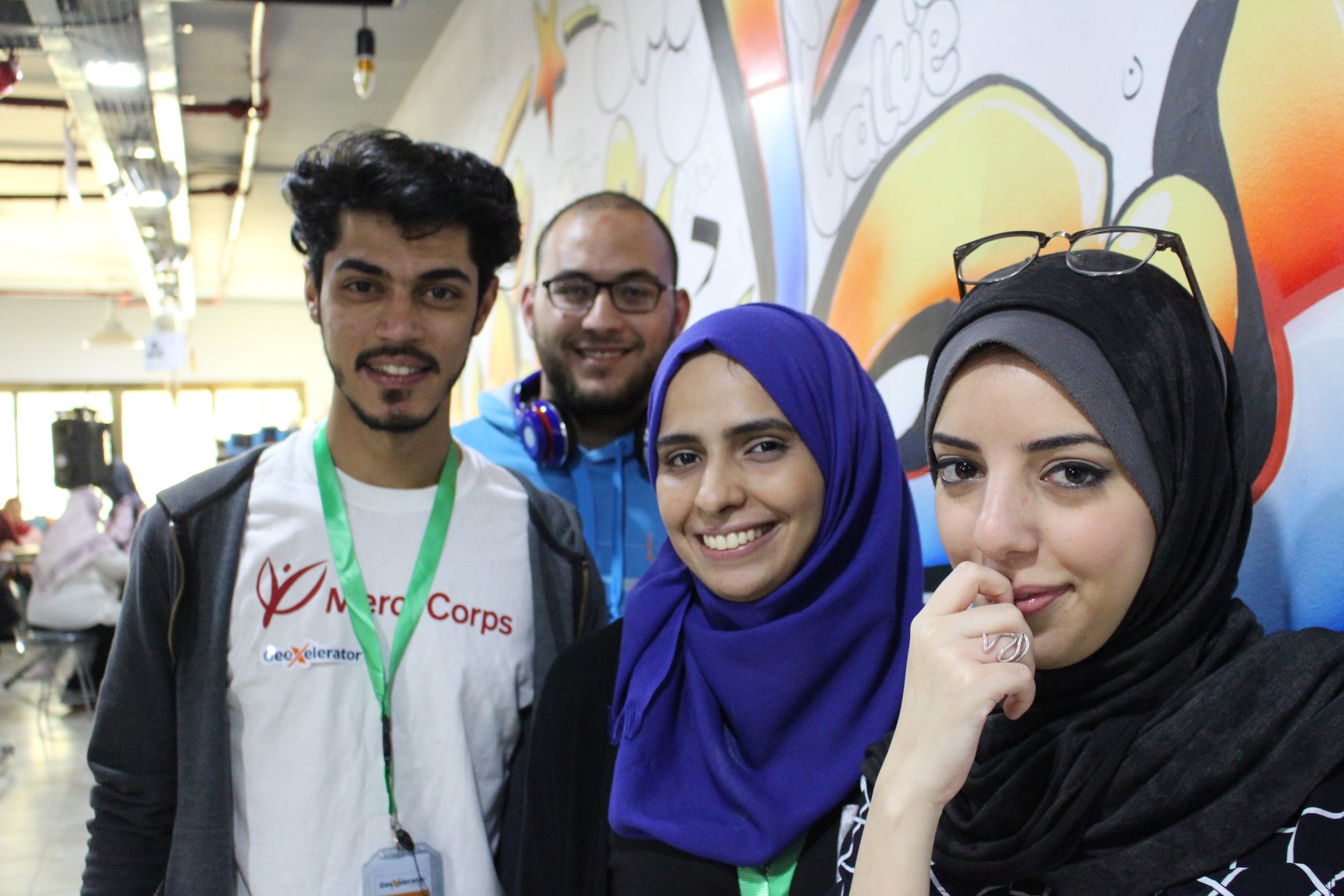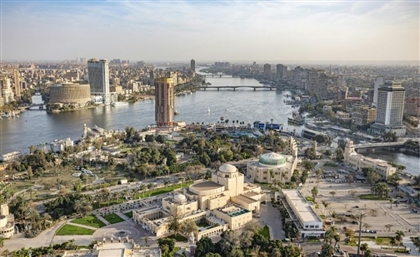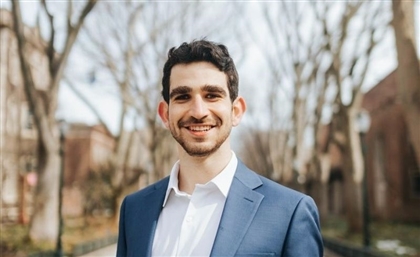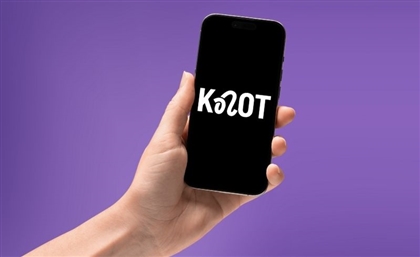Meet The Gaza Startups Competing Globally Despite the Siege
“Whenever there’s hard work there’s always hope,” says Sara Al-Afifi, Mentorship and Communications Coordinator at Gaza Sky Geeks. Leena ElDeeb speaks to entrepreneurs bucking the odds in the Gaza Strip, a Palestinian city under blockade since 2007.

Welcome to Gaza, where seasonal bombs bounce from and to the city like ping pong. In Gaza, it is a rarity to have access to electricity, medicine, and basic goods. But since what doesn't kill you makes you stronger, young minds of the misfortunate Strip have decided to make a business out of their misery.
Inspired by their common struggle, a group of front-end engineers from the Strip joined hands to establish Tashkeel3D, a 3D-printing service that provides customers with equipment - most notably, medical equipment. "We live in a country with exceptional circumstances," says Mohammed Abu Matar, the managing director of Tashkeel3D. "Because of the siege, we are prohibited from importing electronic parts and equipment. Machines like the three-dimensional printers are impossible to import, so we started to manufacture them locally by reusing some pieces of old fax machines and paper printers. The months and years passed without a satisfying result, until I became acquainted with the world of open-source designs of hardware. I met with one of those interested in this field and, thanks to these designs, I completed the first 3D printer in the Gaza Strip."

On the right, stands Tashkeel3D's Director Mohammed Matar.
Gaza's blockade has had and continues to have a significant impact on the development of Tashkeel3D. "We grow, but very slowly," says Abu Matar. "We miss many opportunities, workshops, and meetings with investors happening outside Gaza - we cannot leave the strip."
But these entrepreneurs don't know the way to giving up. To overcome this problem, they resort to social networking platforms and direct e-communication with specialised experts of a certain technology - however, Abu Matar still finds the communication very limited and the electronic alternatives don't really fill the gap. That is in addition to the scarcity of the technical equipment they provide, the engineers manufacture what they can within the boundaries of Gaza but that comes at a very high cost.
According to a 2015 study by the Islamic University in Gaza, low employment, high informal sector and low invested capital in the city’s industrial establishments reflected negatively on the level of productivity in Gaza’s establishments. According to the PCBS labour force survey data for the fourth quarter of 2008, 45.3 percent of firms in the West Bank are informal compared to 65.7 percent of enterprises in the Gaza Strip.

Majd Mashharawi's award-winning startup, Green Cake, is composed of a core team of five people including herself.
"I remember when I was a student, I had a scary dream that I would be unemployed after graduation," Majd Mashharawi tells Startup Scene ME. "I was also very disappointed in the constructional situation in Gaza, limited to building with imported materials." So, using her academic background in architecture, the Gazan civil engineer decided to start a business that would serve the residents of her hometown to overcome the problem of imports inflicted by the decade-long blockade. "The best solution was to use materials that already exist, instead of importing building materials and waiting for weeks and weeks to get them in,” she says. “On the other hand, my father has a research paper conducted on how to make bricks out of paper… and I started from there.”
Green Cake, Mashharawi’s award-winning startup, is composed of a core team of five people including herself. Green Cake is based on a demand-driven business model; when they receive an order request, they rent a factory and hire up to seven project-based workers for a short period of time – a couple of days, depending on the size of the demand.
“The blockade is affecting the overall economic situation in Gaza, not only the daily life,” Mashharawi says. “People who don’t have money to buy goods, especially in the last two months, when the employees don’t get salaries and we cannot get imported products to cross inside the borders of the Strip."
Gaza is a risky market for Green Cake, according to its founder. “The economic situation is not stable, which means it’s not an attractive market for investors to put money in,” she explains. “If you can convince one investor to pump money inside some of the startups in Gaza, this investor would be pumping money just to help us, out of sympathy not from a business perspective,” she goes on.
Also, due to the blockade, Mashharawi and her team missed out on opportunities to attend international conferences, workshops, competitions, awards. “I hate it, I hate it the most. I hate that I lose freedom when I go back home.”
For seven years, the civil engineer has been “pushing and pulling” with the authorities, whether with the Egyptian or Israeli, the states enforcing the blockade from each end, to get hold of permits to be able to represent Green Cake in this or that summit. To get around this obstacle, Mashharawi was able to get someone from outside Gaza to represent the team in some of the global events they were invited to.

Gaza Sky Geeks is an NGO striving to build an internationally competitive technology ecosystem in Gaza.
Similarly, Gaza Sky Geeks (GSG), an NGO striving to build an internationally competitive technology ecosystem in Gaza, has watched its startup CEOs struggle to secure funds. They cannot leave Gaza to participate in international events or pitch competitions where they can network and meet with potential investors. Besides, it is not common to find investors ready to make the risky and troublesome trip to Gaza.
“Another way the continued blockade hinders graduates of our programmes from participating in internship and training opportunities with our international partners, as we are not always able to secure them permits to leave Gaza through the border with Israel,” GSG’s Mentorship and Communications Coordinator Sara Al-Afifi tells Startup Scene ME. “The border with Egypt is highly unpredictable in opening and closure times. It can remain closed for months in a row and then is very difficult to return.”
Since last March, when protesters in Gaza took to the border, at least 43 Palestinians were killed and more than 3,500 were injured with live ammunition, rubber bullets or shrapnel. The United Nations condemned Israel's reaction to the protests, saying that it has engaged in an "excessive use of force."
GSG’s graduates have historically faced challenges getting paid for the jobs done for remote clients. “PayPal is not allowed in Palestine and the other payment processing options provided by similar gateways and banks encounter high fees and are not always available for Gaza users,” Al-Afifi elaborates; adding that GSG has undertaken many efforts with payment companies like Stripe and local banks to make it easier for Gazan freelancers to get paid.
“The lesson that I have learned in my journey is how to build businesses in risky markets, which is a really good experience which I didn’t find in entrepreneurs abroad,” Mashharawi says; adding jokingly.
If you’re successful in a market like Gaza, I can guarantee that you can be successful anywhere in the world.
The business world in Gaza is also a very difficult environment, especially in the field of hardware, it is almost impossible. Many of Matar’s friends have given up their work in hardware for programming, because they do not need as much equipment. But motivated by his faith and passion for work, Matar’s greatest lesson is not to give up on dreams, with perseverance and patience, mixed with some stubbornness.
“The most important lesson we learned is that whenever there’s hard work there’s always hope,” says Al-Afifi.
Main Image: THeGaza Sky Geeks team in their office.
Courtesy of Gaza Sky Geeks.
Trending This Month
-
Jan 19, 2026






















